Death and distrust: Spiralling violence in southeast Nigeria stirs memories of civil war
Security forces and separatists are trading the blame for brutal attacks, yet civilians pay the price in a region where answers and justice are hard to come by, writes Adaobi Tricia Nwaubani

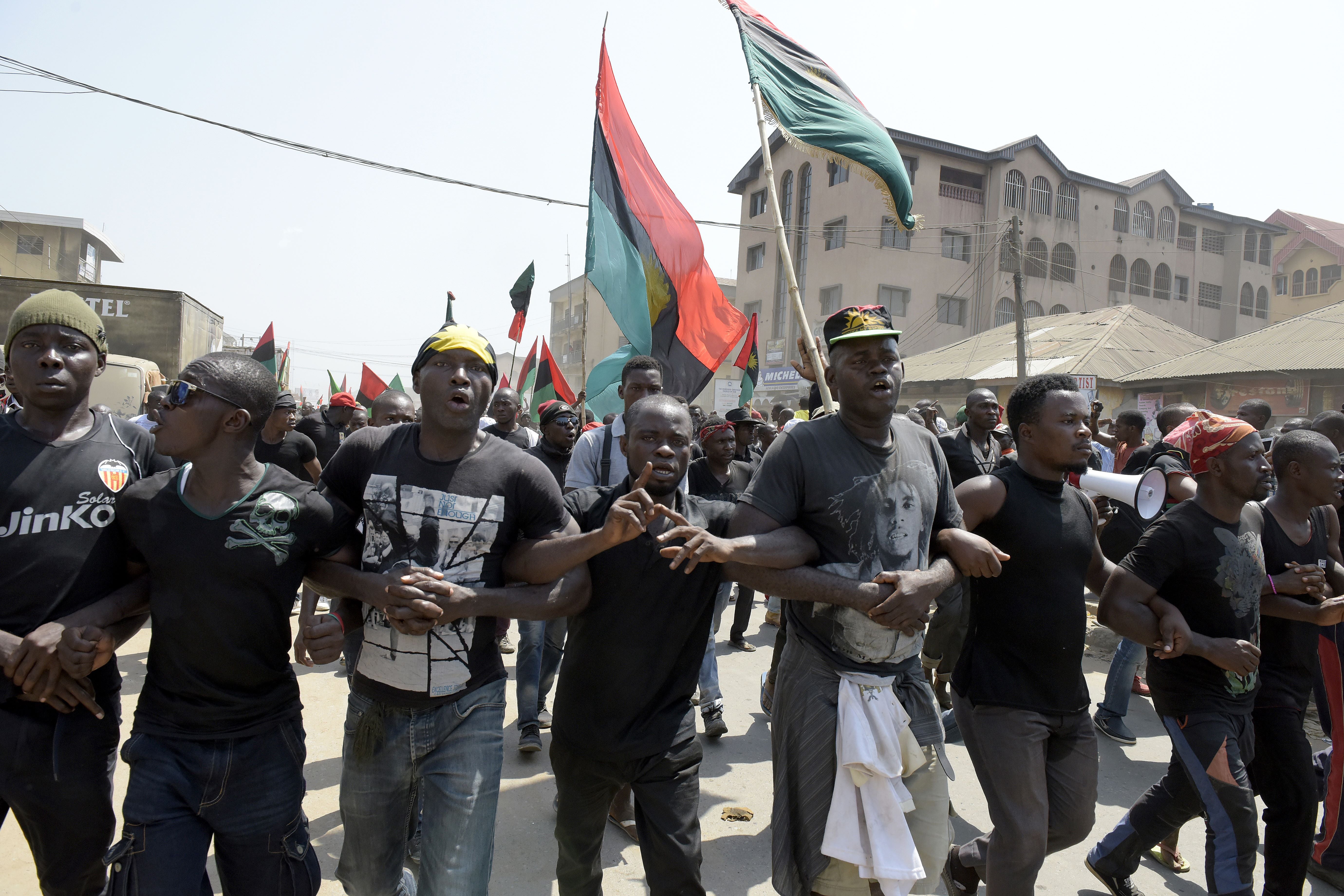
Early one morning in October, Ebere Ewike was driving home to his family in the southeastern Nigeria town of Obowo, when he was assaulted by a group of young men who set his car ablaze.
As with many attacks and killings this year in the region – where tensions are rising between separatists and state forces, and the public is increasingly fearful – Mr Ewike’s wife first learned about her husband’s death via messages circulating on WhatsApp.
“We saw photos on WhatsApp of his car burning,” Uzoma Anosike told The Independent. “That’s how we knew what had happened. People who live in the area posted it to warn others not to move around on that day.”
The 56-year-old’s remains were unrecognisable, leaving his wife and relatives with nothing but charred bones to bury.
The men who attacked Mr Ewike – who worked as a commercial driver – were angry because he had ignored a stay-at-home protest by the Indigenous People of Biafra (IPOB), according to a woman to whom he had given a lift and who managed to escape unhurt.
The separatist group could not be reached for comment on Mr Ewike’s death, but it has said it is non-violent and repeatedly denied involvement in the killing of civilians.
IPOB has repeatedly urged people in the southeast to stay at home this year to show solidarity with its detained leader Nnamdi Kanu, who is awaiting trial after being arrested in June, and to protest against the federal government’s treatment of the Igbo ethnic group.
The secessionist movement, which is seeking independence for the southeast Nigerian homeland of the Igbo people, is officially banned and has been designated a terrorist organisation by Nigerian courts and the military.
The region tried to secede in 1967 under the name Republic of Biafra, triggering a three-year civil war that killed more than one million people.
Separatist sentiment has simmered ever since, with the Igbos feeling increasingly marginalised and also disenchanted that none from their ranks has ever been elected president while the other two main ethnic groups, the Hausa and Yoruba, have provided leader after leader.
Frustration has only grown since the 2015 election of President Muhammadu Buhari, who has been regularly accused of favouring his Hausa-Fulani kinsfolk with appointments and other federal allocations, while sidelining the Igbo seemingly as a punishment for the low votes he scored in the region.
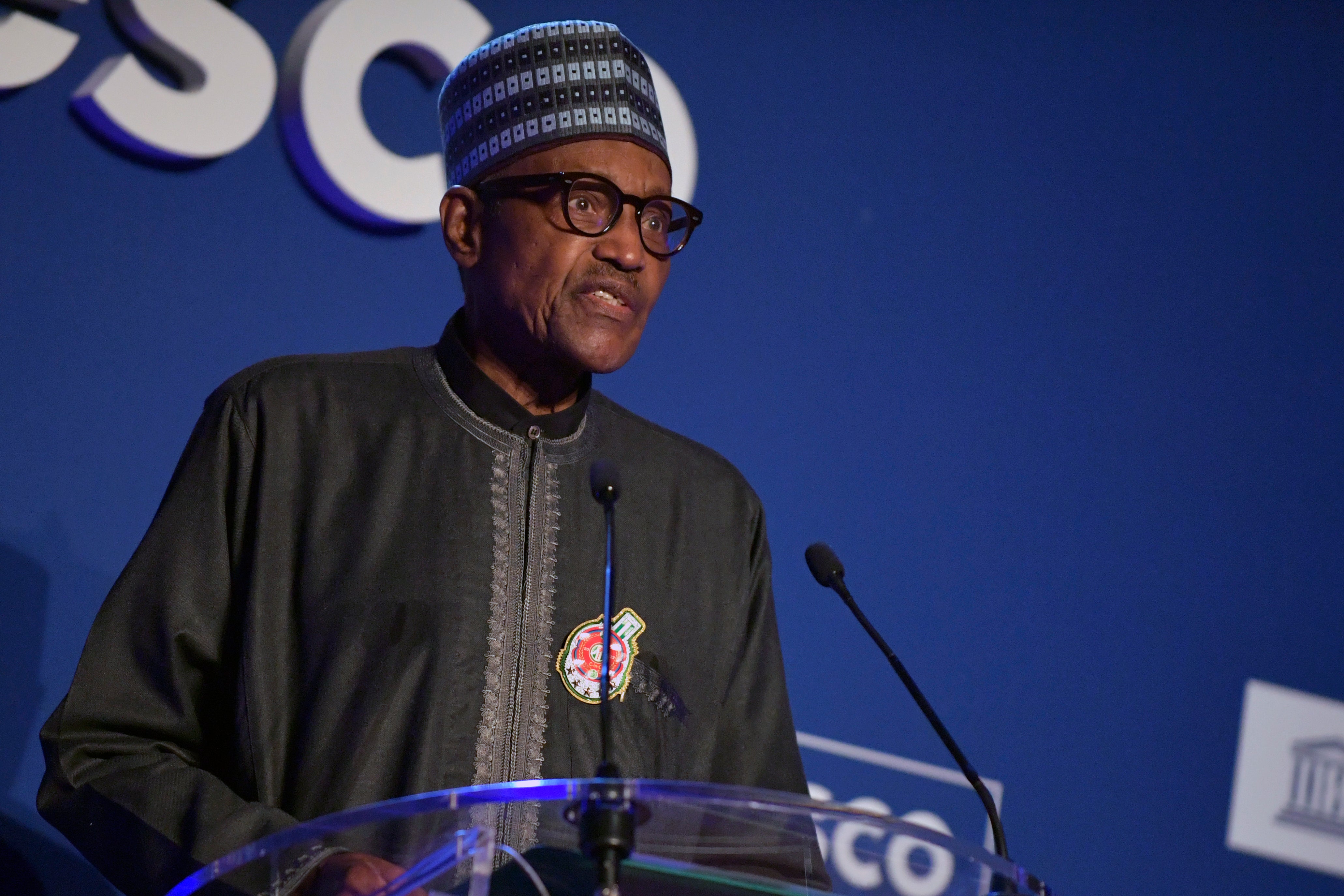
Such resentment has reached boiling point this year, according to local residents, analysts and academics, who point to unprecedented violence in 2021 involving the Nigerian authorities, IPOB, and other unknown actors with hidden agendas.
Many civilians have been caught up and killed in the bloodshed, yet information, recourse and justice are hard to come by, given the heightened state of tension and the fact that separatists and security forces are pointing the finger at each other.
“The sources of violence are diverse … Some of it is criminal, some of it is political,” said Chidi Odinkalu, a professor at the Fletcher School of Law and Diplomacy in Massachusetts, who was formerly the head of Nigeria’s human rights commission.
“All of this is happening because of a failure of politics and political leadership by the elite of the southeast, and they’ve got to take some of the responsibility,” he said, referring to the elected governors of the five Igbo states.
“The other end is the wilfulness of the Nigerian state, who have an antipathy, in my view, towards the southeast.”
The government has blamed IPOB’s armed wing, the Eastern Security Network (ESN), for attacks on public buildings including prisons, police stations and electoral offices in the southeast, and the killings of dozens of security operatives.
The assassinations of top politician Ahmed Gulak and prominent statesman Chike Akunyili have been attributed to the ESN by the government, among others, although the separatists have strongly denied the claims.
Meanwhile, security forces including the military and police have killed dozens of people – including civilians – and detained hundreds of others, activists say.
IPOB’s spokesman Emma Powerful has previously accused the authorities of attributing killings to the separatists for political gain, and even suggested that security forces are carrying out such attacks disguised as IPOB members.
Human rights groups have estimated that the death toll of the violence in Anambra, Imo, Abia, Enugu, and Ebonyi states might run into the hundreds this year alone.
According to Amnesty International, state security forces killed at least 115 people in the southeast and arbitrarily arrested more than 500 between January and June this year.
I think the government is setting Nigeria on fire
Nigerian government spokesman Garba Shehu said that the authorities’ crackdown on IPOB was a response to attacks on state institutions and law enforcement.
“The military did not just descend on [IPOB] and start attacking them,” he told The Independent. “I’m not sure that there is any country in the world where attacks on law enforcement agencies are taken lightly.”
This summer marked an escalation in the security crisis when Mr Buhari wrote a tweet in June referencing the 1967-1970 civil war and warning that those “misbehaving” in the southeast would be treated “in the language they understand”. Twitter swiftly removed the post for violating its rules, prompting a backlash from the government.
Just weeks later, IPOB leader Mr Kanu was brought back to Nigeria from the UK in mysterious circumstances after years on the run, arrested, and held in detention pending a trial on 11 charges, including treason and terrorism.
While the popular yet controversial figure’s brand of freedom fighting does not appeal to the upper echelons of Igbo society, who consider him deranged, he is seen as a messiah by many in the southeast.
Mr Kanu’s messaging that places Igbos’ suffering solely at the feet of the president and the Hausa-Fulani group has proved popular, although it ignores the role of their kinsmen state governors, and local radio shows feature many members of the public calling in to praise him.
Following Mr Kanu’s arrest, IPOB announced a sit-at-home order in the entire southeast for every Monday that he remains in jail. While this was called off in November, markets and shops remained closed thereafter, while traffic was sparse.
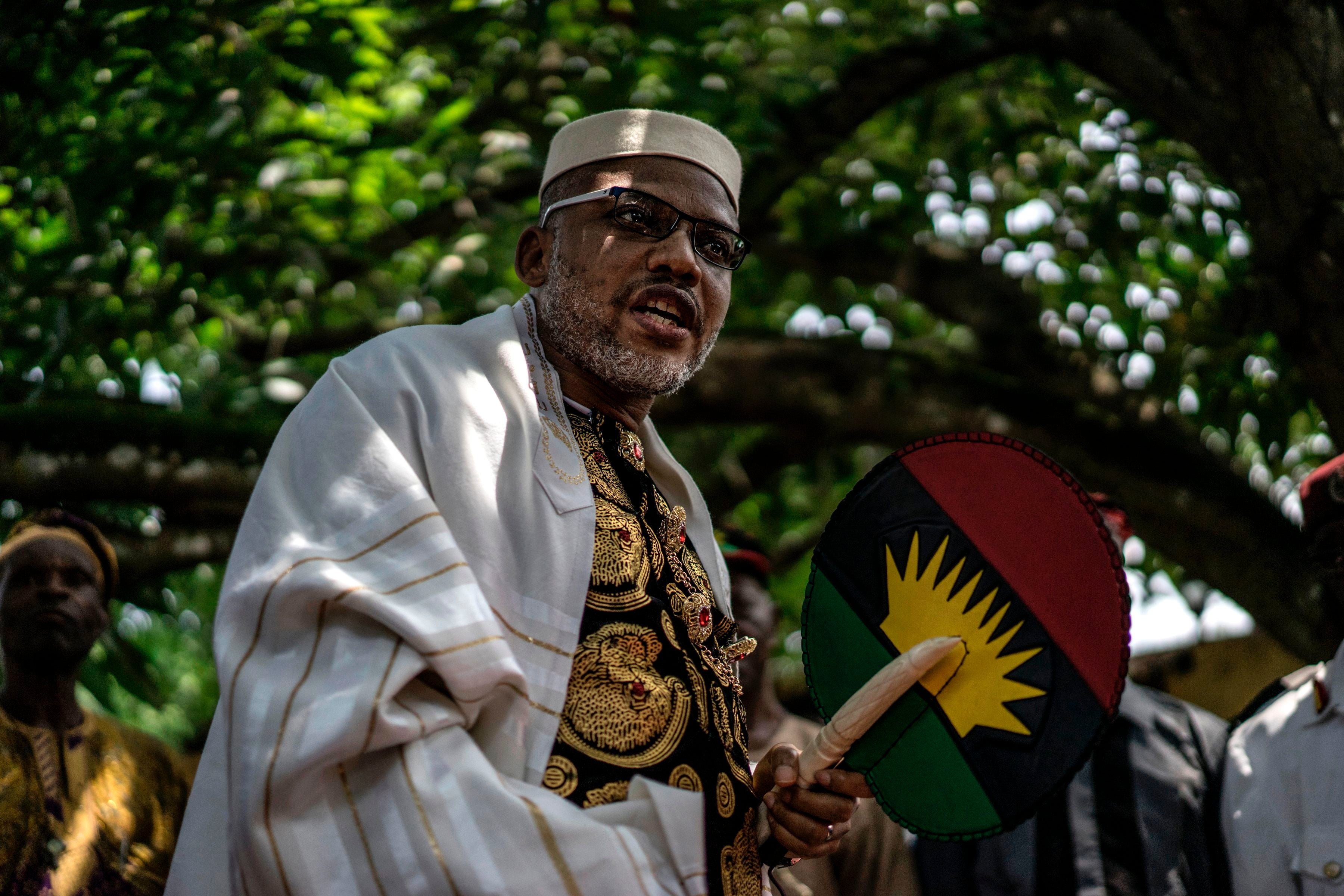
Normality has resumed somewhat in the southeast during the past month, but Igbos are still on high alert and this has disrupted Christmas and New Year plans for many.
At a time when Igbos across Nigeria and indeed the world would tend to travel home – the pandemic notwithstanding – this year, things are very different.
One man in Dubai who works as a content creator said that his aunt begged him not to return for Christmas to Umuahia, the capital of Abia state, as he usually does every year.
A woman in Lagos said her father, also a Umuahia resident, pleaded with her and her siblings to not come home for a recent ceremony where he was being honoured at his church.
Perhaps most tellingly, an advertisement posted by the Wakanow online travel agency went viral for its special package offer of trips to the southeast of Nigeria, which includes armed guards for each day of one’s stay.
“This is an all inclusive package that caters for your safe commuting home and also caters for the welfare of those assigned to you,” the advert read. “We have all of it covered!”
But protection of any kind is lacking or non-existent for most people in the southeast, while those who have been directly affected by violence are still searching for answers or trying to make sense of what they experienced.
Ms Anosike said she did not believe her husband was killed by IPOB members, instead pinning the blame on “unknown gunmen”.
This phrase has become the local parlance for these nameless and faceless perpetrators of violence, who never claim their attacks, as you would normally expect of insurgents, and who seem to always evade capture by security forces.
It is not just IPOB but many people across the southeast who believe that the authorities are responsible for the unexplained and unclaimed attacks.
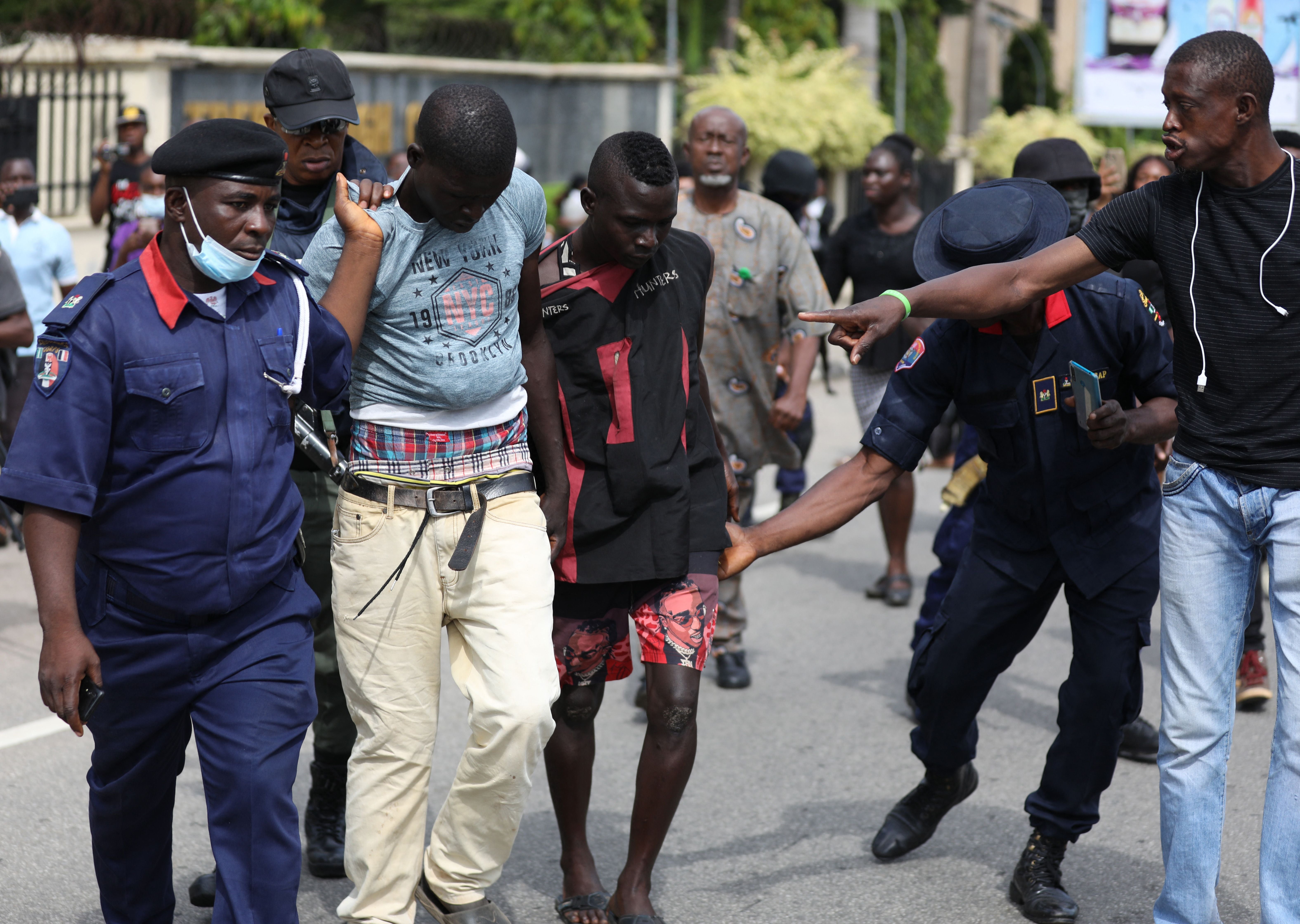
In many of the WhatsApp videos that have circulated and gone viral, families gather around dead bodies, sobbing and describing how their relatives were killed by soldiers.
In August, 50-year-old Chioma Achilike and three of her siblings travelled from Lagos to attend a burial ceremony in the southeast, when they heard gunshots as they approached Orlu town.
Expecting to encounter armed robbers, they were surprised to see armoured military vehicles – and were even more shocked when the soldiers started firing at oncoming cars.
“All of us laid on the floor and then ran out of the car,” she told The Independent.
After hiding in nearby bushes for hours, the siblings eventually emerged with their hands held in the air. They were questioned by the soldiers before being allowed to leave, but their car had been ransacked and their suitcases were gone.
Ms Achilike was amazed to see the incident reported on more than one TV station the following day as a clash between IPOB and the military.
“We were the people the soldiers ‘clashed with’,” she said. “There was no IPOB.”
The military did not respond to a request for comment on Ms Achilike’s account.
Government spokesman Mr Shehu said he was unaware of allegations of security agents pretending to be IPOB members to perpetrate violence, but said the government would not accept such behaviour.
“If it is brought to the attention of the government, it will be dealt with,” he said.
But few people or observers have faith in the Buhari administration to address the worsening situation, and some experts fear things are only set to spiral further.
Isaac Olawale Albert, professor of African History, Peace and Conflict Studies at Ibadan University, said the crisis would escalate as long as the federal government maintained its stance of refusing to negotiate with IPOB.
“The southeast of Nigeria is frustrated, and has everything you need for full blown violence,” he said.
“So long as the federal government is not willing to have dialogue with IPOB, I think the government is setting Nigeria on fire.”


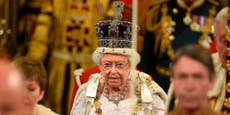



Join our commenting forum
Join thought-provoking conversations, follow other Independent readers and see their replies
Comments